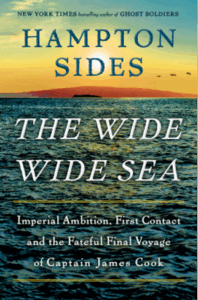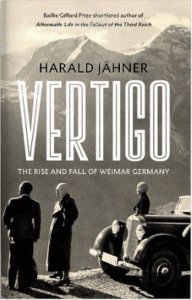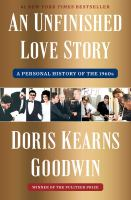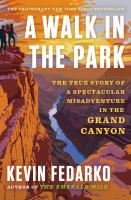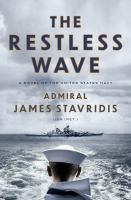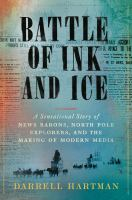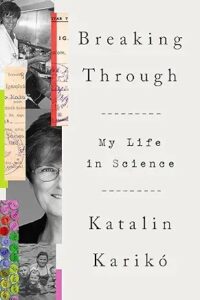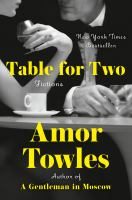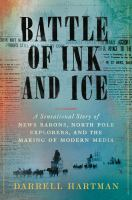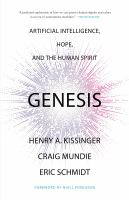 John McCarthy, the computer scientist who coined the term “artificial intelligence” in 1955, defined it as “the science and engineering of making intelligent machines.” Nearly 70 years later, AI—as we now call it in almost jaded shorthand—is present in every facet of life. It can be used (to name but a few applications) to cheat on a college essay, treat cancer, play chess and design spaceships. It can also be used to wage war and sabotage elections.
John McCarthy, the computer scientist who coined the term “artificial intelligence” in 1955, defined it as “the science and engineering of making intelligent machines.” Nearly 70 years later, AI—as we now call it in almost jaded shorthand—is present in every facet of life. It can be used (to name but a few applications) to cheat on a college essay, treat cancer, play chess and design spaceships. It can also be used to wage war and sabotage elections.
AI is an invention that has the capacity to revolutionize human life, on a par with fire, electricity, the printing press and atomic power. Its profound importance can be gauged from the fact that the late Henry Kissinger focused more intently on AI in the last years of his life than on any other subject. In 2018, at age 95, he startled everyone by writing an essay on artificial intelligence in the Atlantic magazine. In 2021 he co-authored “The Age of AI” with Eric Schmidt (a former chief executive of Google) and Daniel Huttenlocher (an MIT professor), a book that compared the advent of AI with the 18th-century Enlightenment for its ability to shape the human mind. And now, almost a year after Kissinger’s death, we have in our hands another book, titled “Genesis,” about “artificial intelligence, hope, and the human spirit,” which Kissinger co-authored with Craig Mundie (a former chief research officer at Microsoft) and (again) Mr. Schmidt.
Henry Kissinger was one of the great statesman-sages of his time, and the brief but moving “In Memoriam” section at the start of the book describes him as a “student of the nineteenth century, master of the twentieth, and oracle of the twenty-first,” the last accolade referring in part to his drive to educate us on the complexities of AI. In “Genesis,” the Kissingerian imprint—that elegant mix of idealism and realism—is evident everywhere. The tone and thrust of the book, write its three authors, is one of “sober optimism,” which, in fact, encapsulates Kissinger’s outlook on life.
If there is a key question that animates “Genesis,” it is this: Should AI become more like humans, or should humans become more like AI? Put another way: Should we control, or be controlled by, AI? The authors stress throughout that, when it comes to artificial intelligence, the worst thing we could possibly do as a civilization—or species—is to drop our guard: “to declare too early, or too completely, that we understand it.”
If Messrs. Kissinger, Mundie and Schmidt sound resigned, in places, to the primacy of artificial intelligence in human life, it is because of the irrefutable computational and problem-solving superiority of AI—or “AIs,” as they often pluralize it, acknowledging that “there will not be just one supreme AI but rather multiple instantiations of superior intelligence in the world.” How could it be otherwise when the average AI supercomputer is (as the authors tell us) already 120 million times faster than the processing rate of the human brain?
“Genesis” is as much a philosophy book—drawing on all that is best in the Western tradition—as it is a book that grapples with a techno-scientific phenomenon. It raises tough, often disconcerting, sometimes harrowing questions. The authors point out that AI allows humans “to know new things . . . but not to understand how the discoveries were made.” The internal processes of the machine are beyond our grasp, so we must resort to a kind of faith in the machine’s logic and authority. Will the age of AI, the authors ask, “catalyze a return to a premodern acceptance of unexplained authority?” Are we, they ask, on the verge of a “dark enlightenment”?
The development of ever more sophisticated forms of AI, we’re told, is “a project led almost exclusively by private corporations and entrepreneurs.” Could corporations form alliances to compound their already immense clout, even accruing military and political power in the process? What impact would that coup have on diplomacy, global stability and the Westphalian order of sovereign nation-states?
While celebrating the role that could be played by AI in the curing and prevention of disease and talking up its potential to be an almost heaven-sent “library of pharmaceuticals” for the benefit of mankind, Messrs. Kissinger, Mundie and Schmidt address moral questions that should make us squirm. Just as we have begun to use AI to “correct” congenital disease, might we not start using it to “install congenital advantages” in our offspring, “advantages that may not belong to either biological parent or, in the extreme, to any other human”? Would we redesign the human race? “What does the perfect human look like?” they ask. “Should we attempt to find out?” Would such genetic alterations cause the human species to “split into multiple lines?”
AI even raises theological questions. If humans come to believe that they’ve been replaced by machines as the foremost intellectual entities on earth, might not some people “attribute a kind of divinity to the machines themselves, thereby potentially spurring further human fatalism and submission”? While the authors don’t offer answers, it is quite right that they have prompted us to search for them.
“Genesis” is a wise and deeply sane book. But it’s at its least convincing in its expressions of belief that our political and scientific leaders must—and therefore will—find a way to act in a coordinated global fashion to instill into machines the core values of human “dignity.” Machines, the authors write, must be “compelled to build from observation a native understanding of what humans do and don’t do.” They must, in other words, learn how to be human from the examples that humans set.
Therein lies the problem. Messrs. Kissinger, Mundie and Schmidt call for “the inscription of globally inclusive moralities onto silicon-based intelligence.” These moralities include some—Communist Chinese, Putinist Russian and Islamist Iranian—that fall far short of our own standards. Our definition of dignity is quite unlike theirs. So much so that our machines may one day be benign and merciful, while those of our foes may be exactly the opposite.
Wall Street Journal 11/25/2024
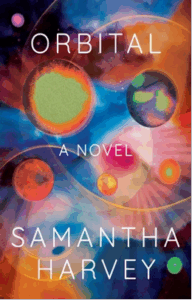 Life on our planet as you’ve never seen it before
Life on our planet as you’ve never seen it before
